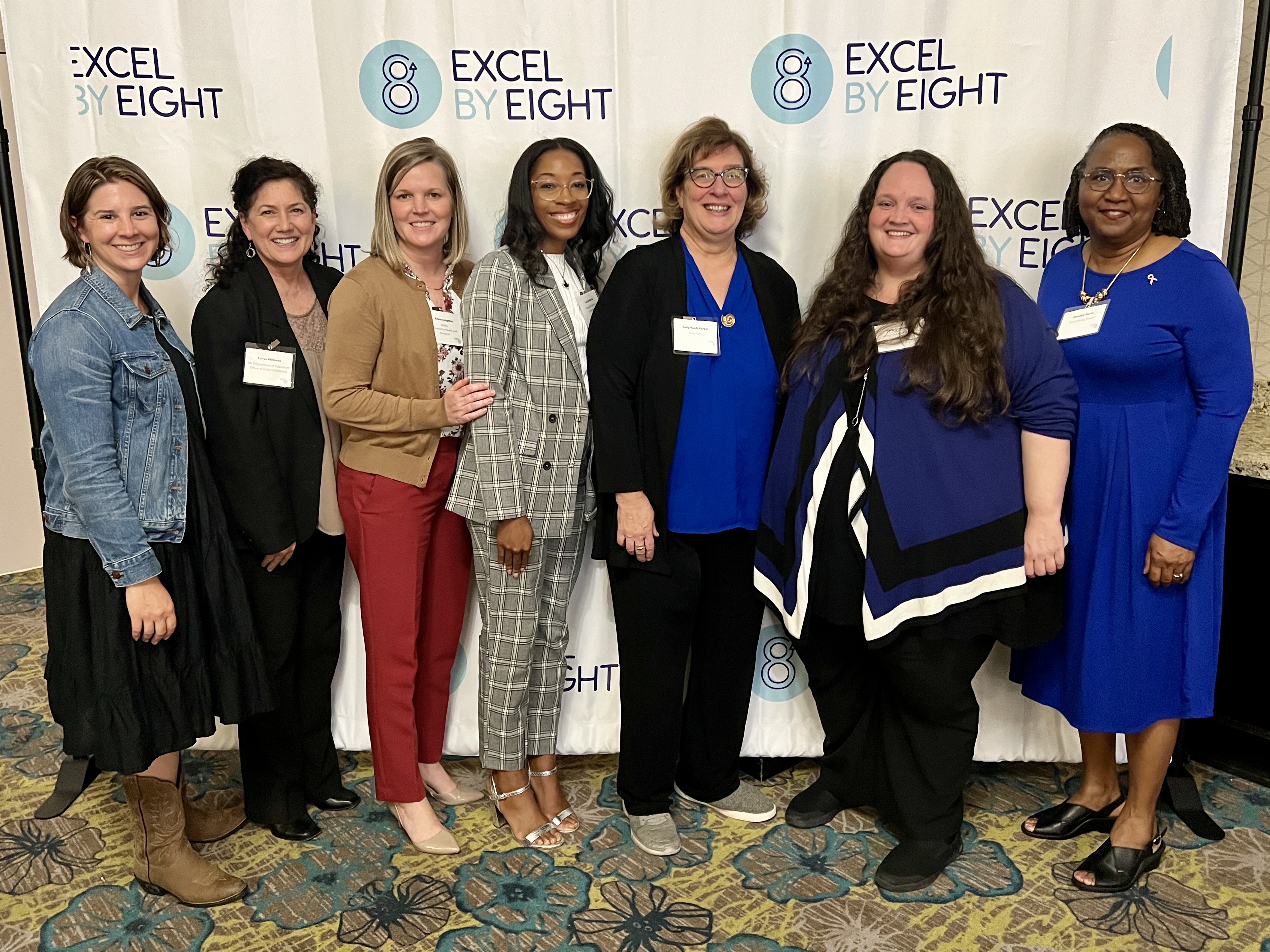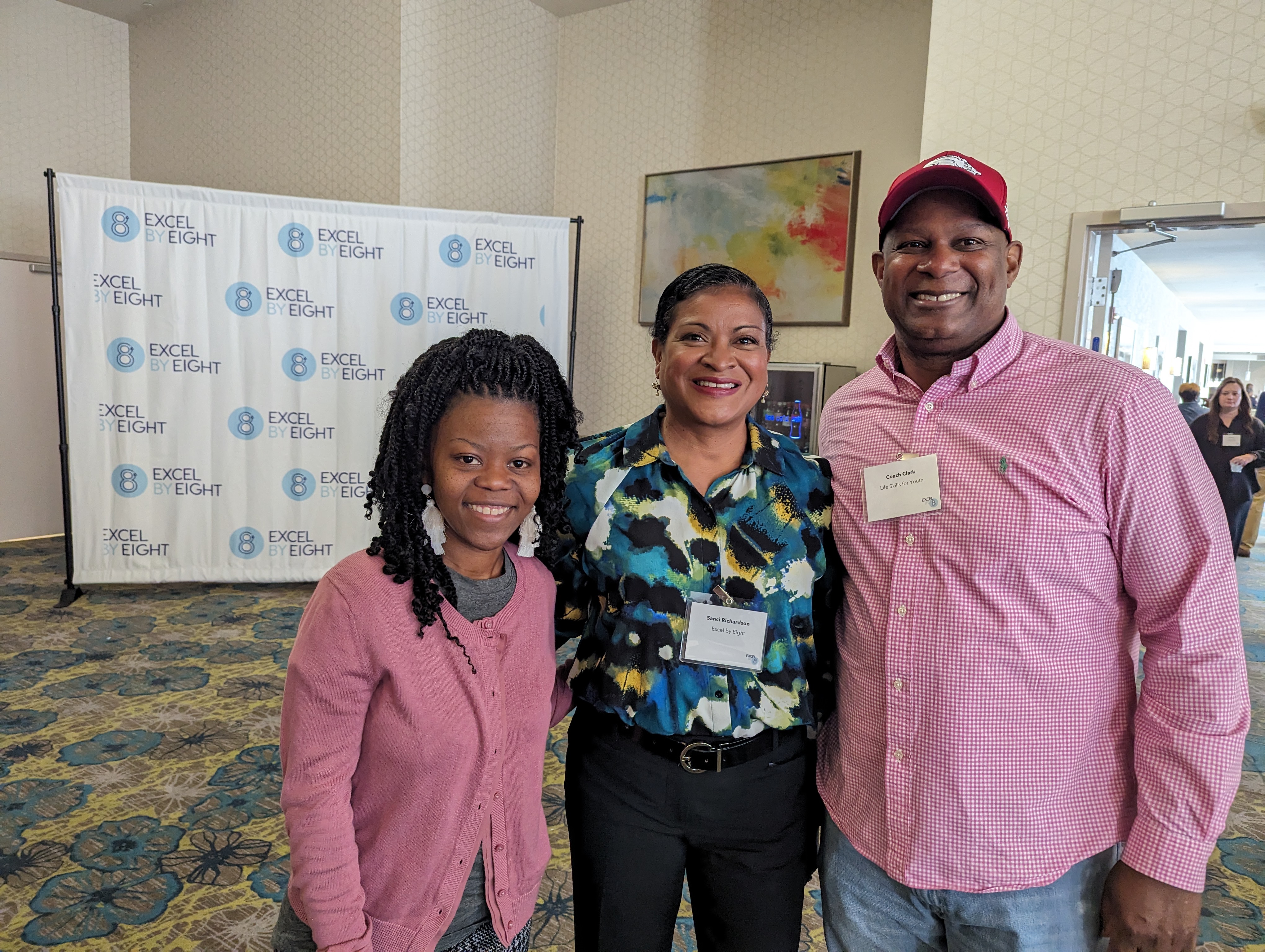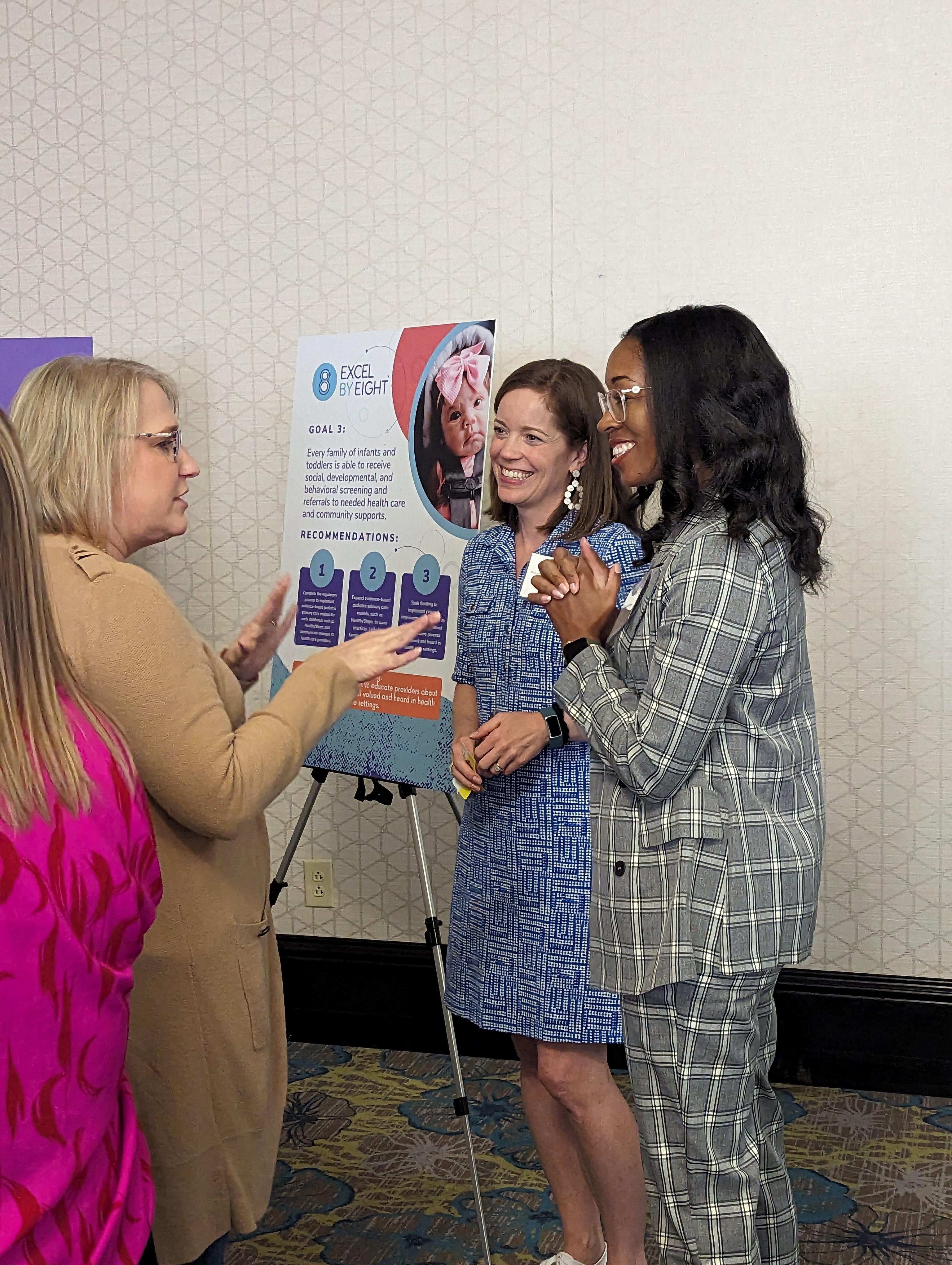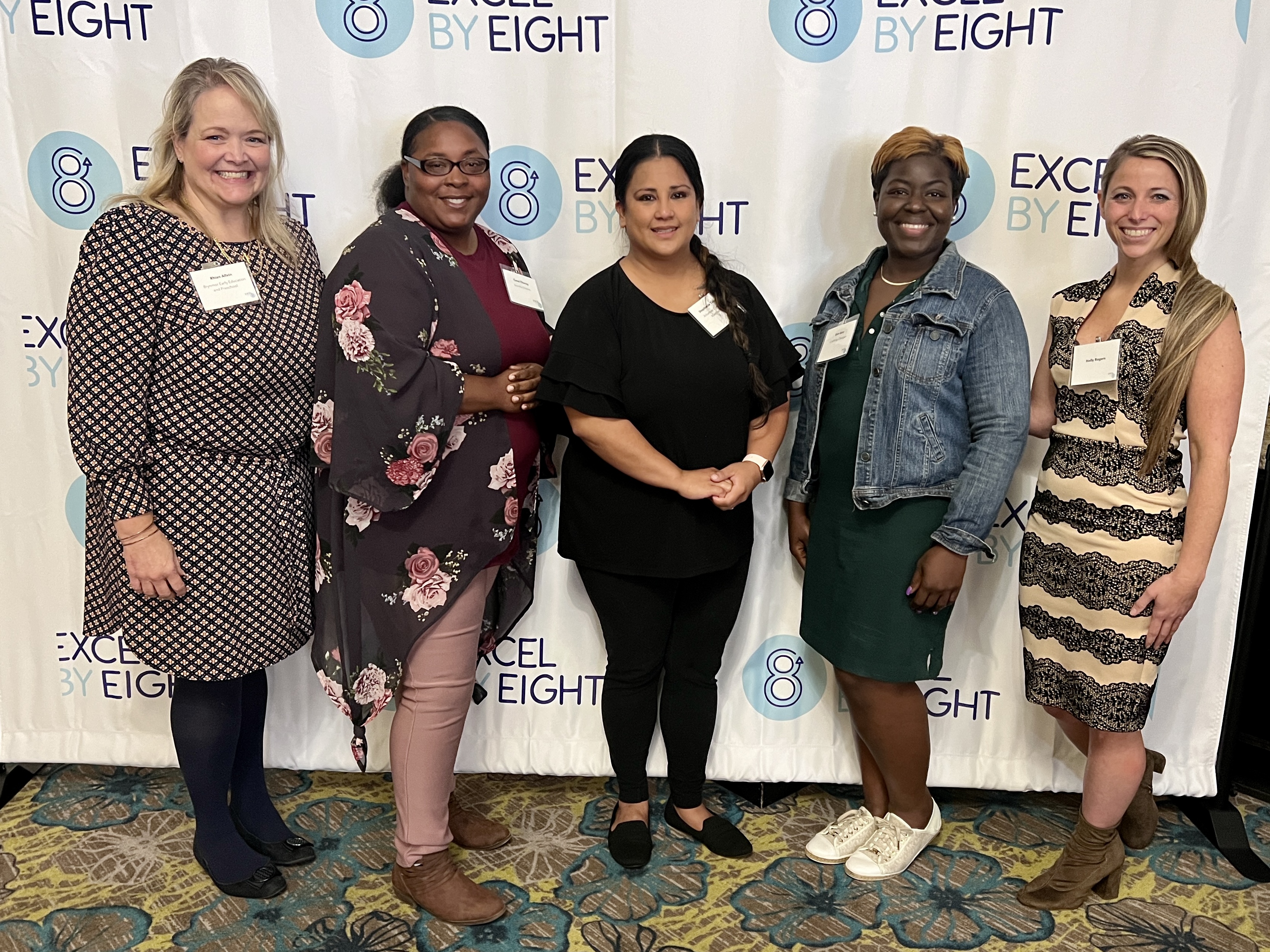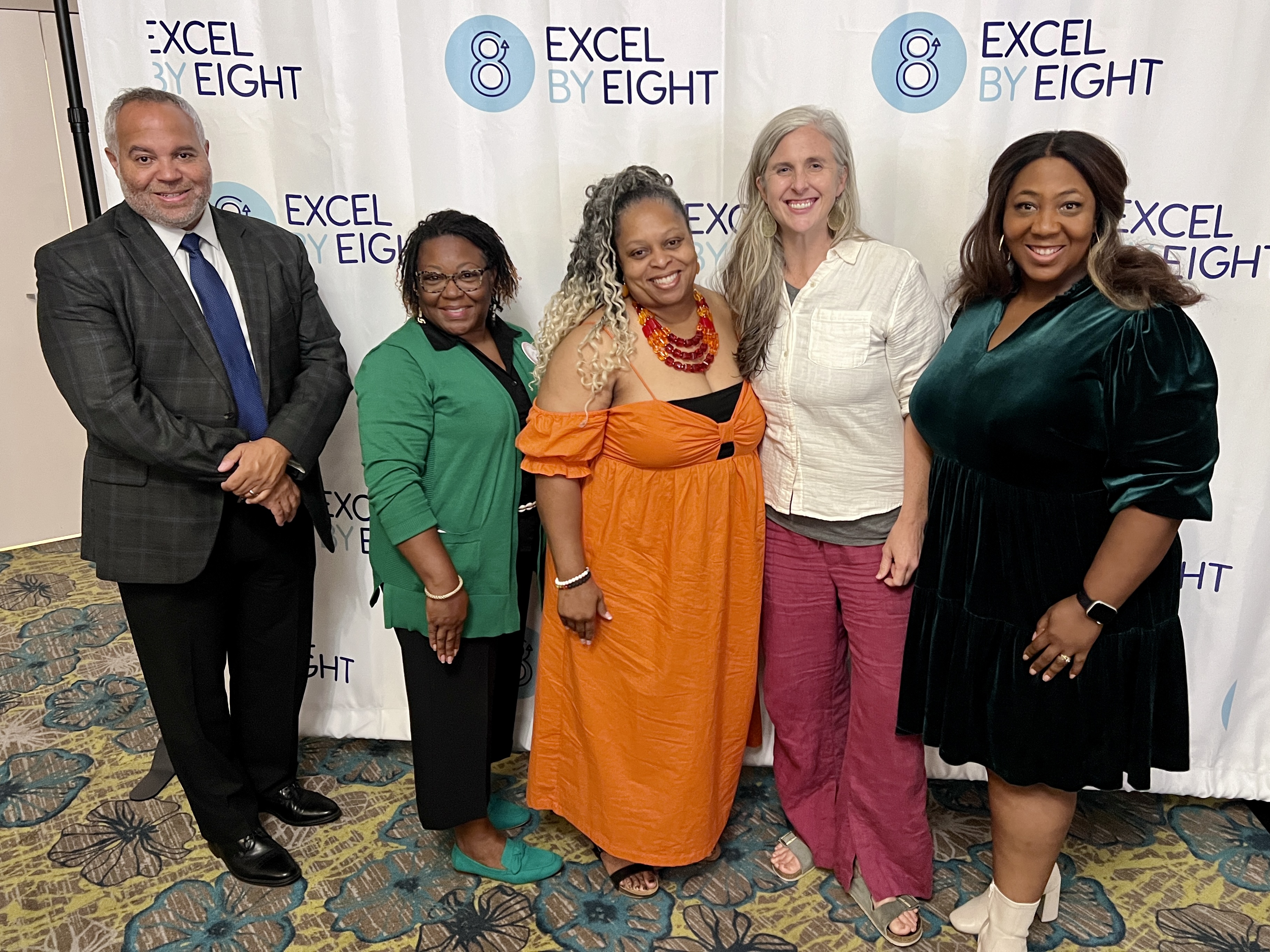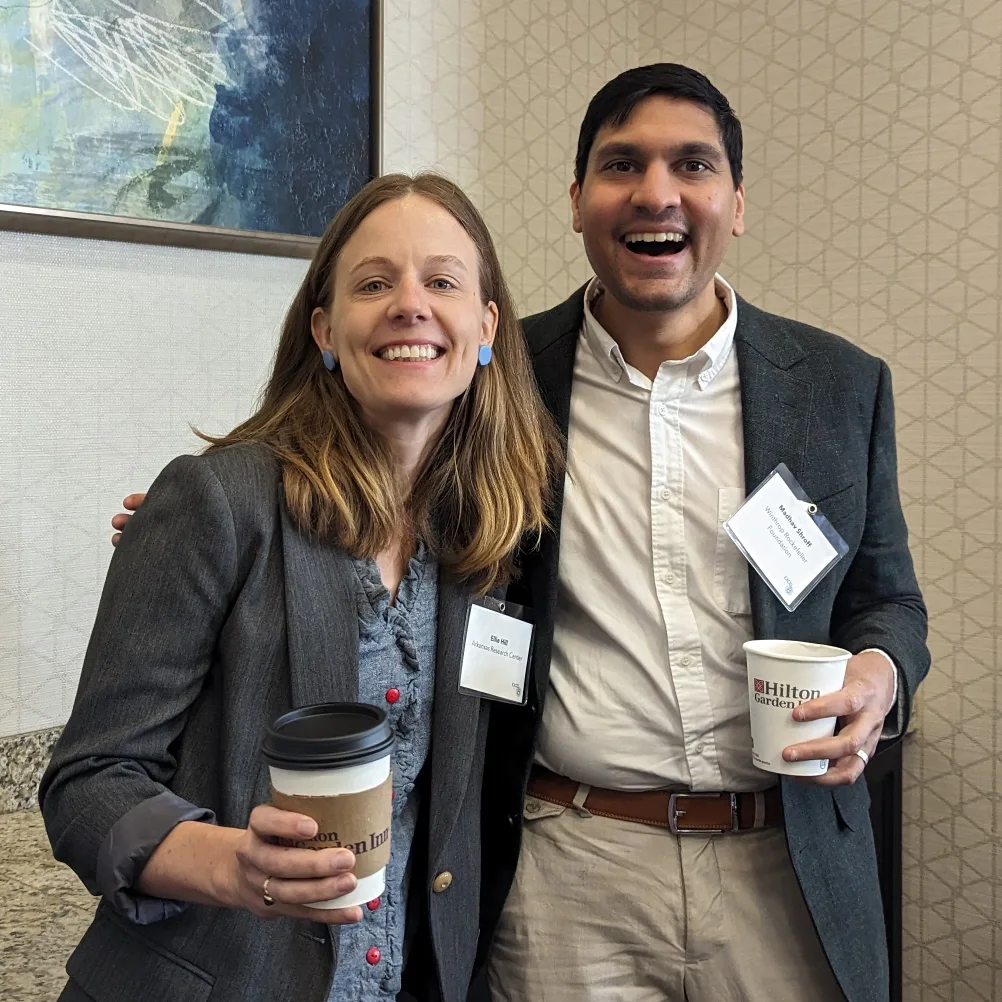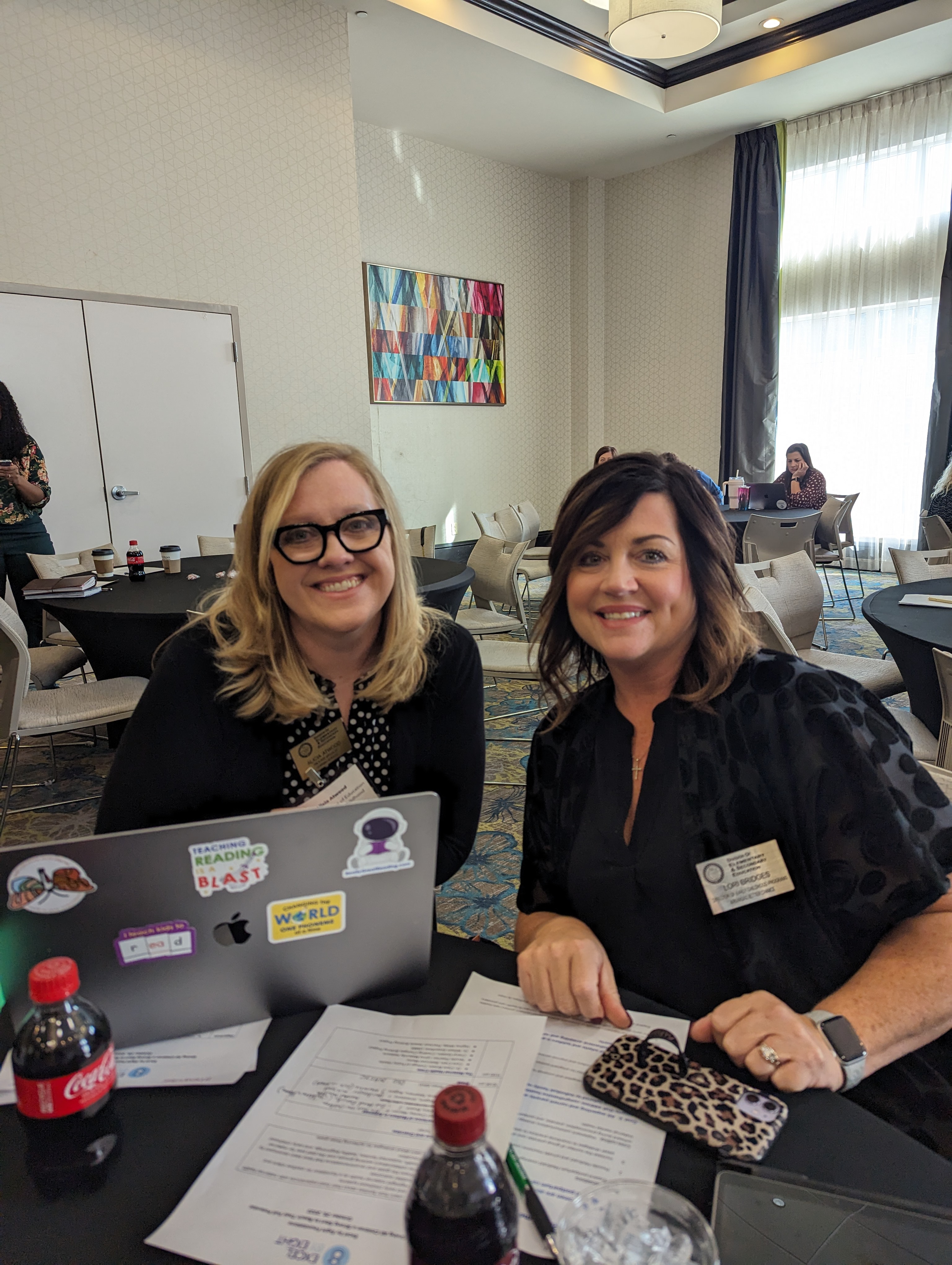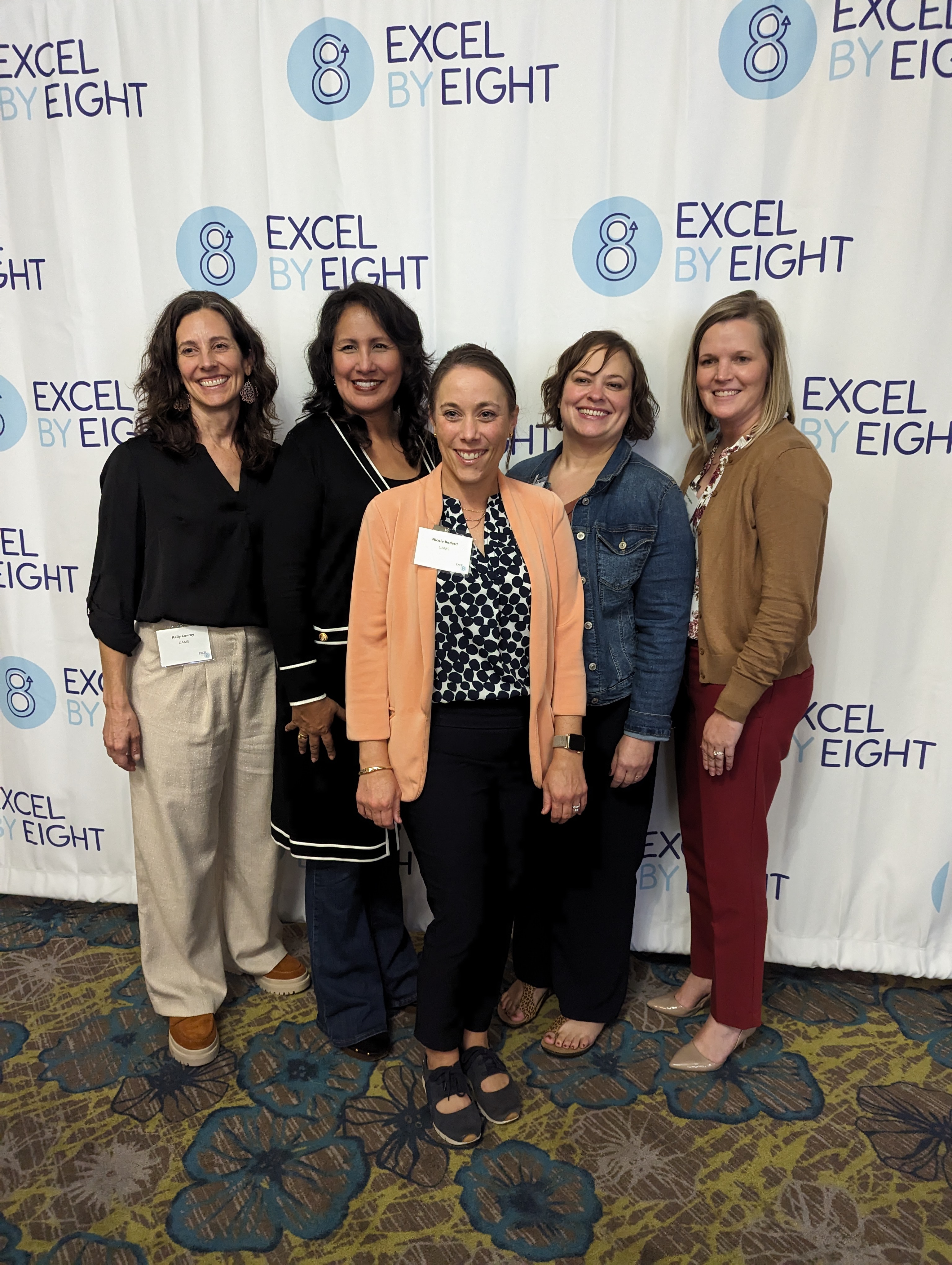In late October, the Excel by Eight Foundations Collaborative gathered in Little Rock with stakeholders and partners for a Summit to dive deeper into the goals and recommendations that have been developed by the collaborative’s working groups over the past year.
This year’s Summit highlighted maternal health as a foundation for positive infant and toddler outcomes. The day began with a panel of mothers who shared their lived experiences from pregnancy and birth to parenthood and early childhood systems. Experts in women’s health discussed the maternal health crisis and possible solutions. We also learned about strategies for achieving goals relating to maternal health as well as supported families, healthy beginnings, and early childhood education.
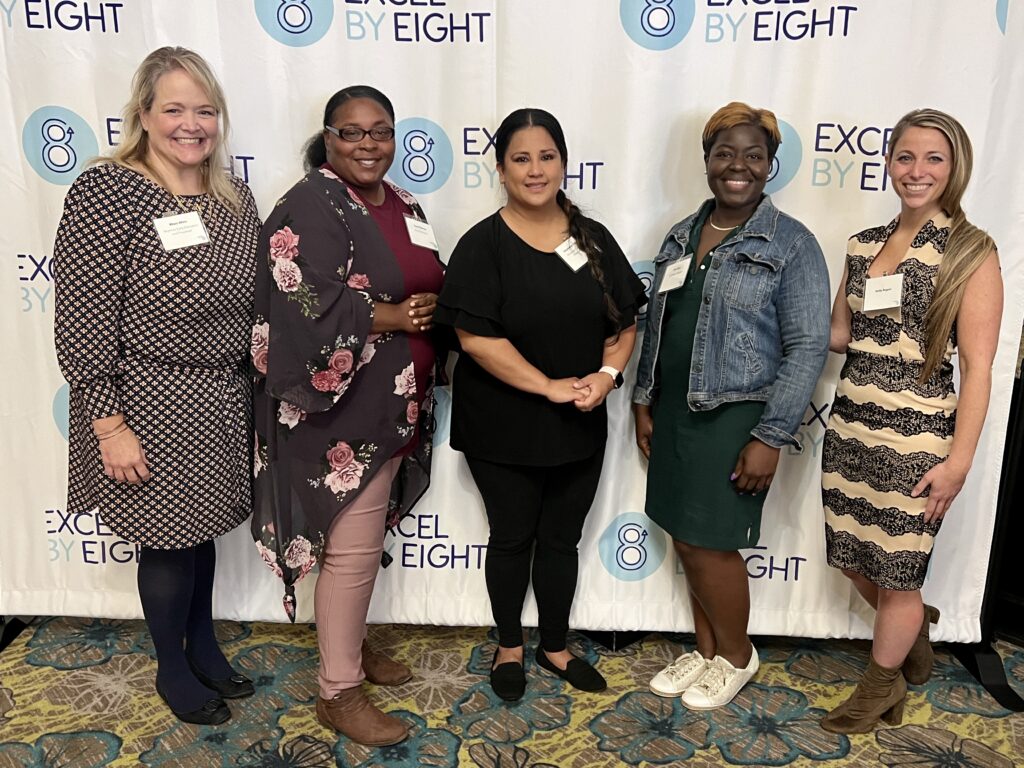
Here are our top eight takeaways from the Summit:
- Although WalletHub has ranked Arkansas’s early education system No. 1 in the nation for two years in a row, there is still work to be done, said Office of Early Childhood director Tonya Williams.
Williams is optimistic that the local leads organizations formed through the Arkansas LEARNS Act will help early childhood educators and business leaders in communities across the state identify issues and solve them at the local level. Local leads are responsible for developing and executing the state’s early childhood plan with a goal to create a unified early childhood system that better prepares children for kindergarten. See the first cohort of 12 local leads organizations that are part of the pilot program, including three representing E8 communities.
- With a maternal mortality rate of 43.5 per 100,000 births from 2018-2021, Arkansas has the highest rate of maternal mortality in the United States.
Clare C. Brown, Ph.D, MPH outlined the importance of studying adverse maternal health, which includes maternal mortality, severe maternal morbidity, and other maternal outcomes. Drivers of adverse maternal outcomes range from food or housing insecurity and chronic stress to provider shortages and hospital quality.
- 92% of maternal deaths in Arkansas are potentially preventable.
One proven solution to the maternal health crisis is ensuring that all women have access to doula support. “You cannot have a healthy child who is thriving when you have a mother or a family who is in survival mode,” said Nicolle Fletcher, co-founder of Ujima Maternity Network. “It is important to focus on the health and wellbeing of expectant mothers and mothers of newborns and infants to ensure positive health outcomes for the next generation.”
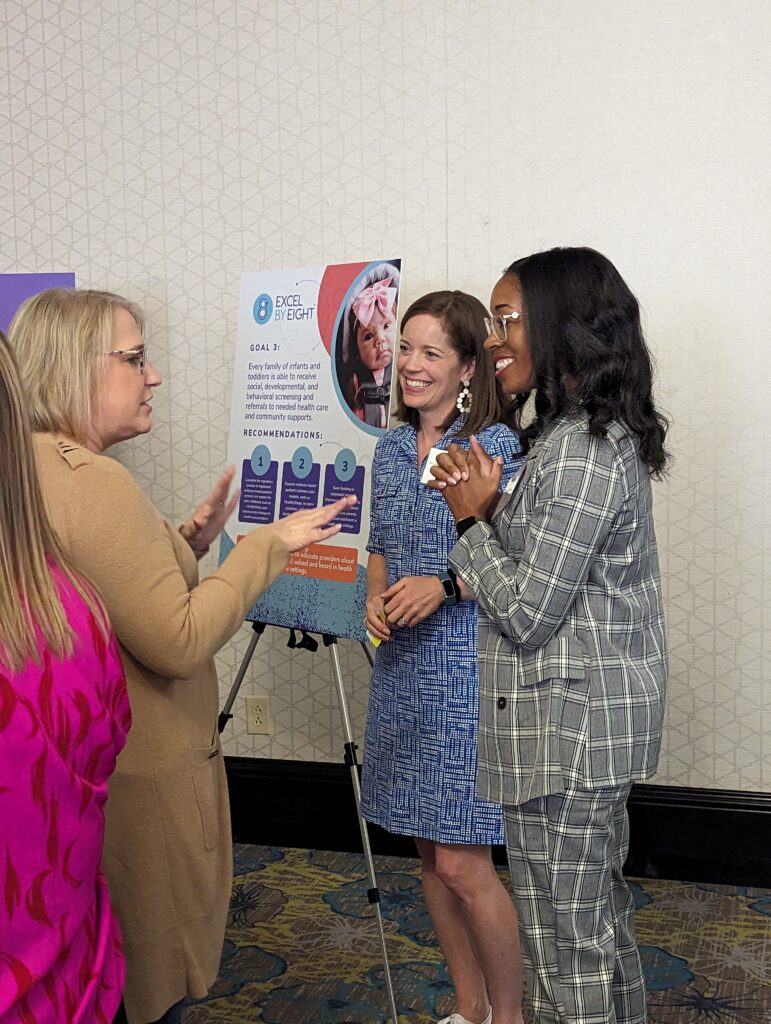
- More than 12,000 Arkansas children have access to universal screenings through ZERO TO THREE’s evidence-based HeathySteps program.
Act 513 now provides a supplemental reimbursement rate for pediatricians and family doctors offering the HealthySteps model, making it possible to sustain existing sites and expand to others. HealthySteps is currently operational in seven primary care clinics and is making measurable improvements to outcomes for families with young children in Arkansas.
- Families who participate in home visiting programs experience fewer infant deaths, fewer ER visits, fewer reported instances of child abuse and neglect, are more prepared for school, and have higher rates of well-child visits and immunizations.
Despite these positive outcomes and benefits, home visiting is often the “best kept secret,” said Tyra Greenwood, director of the Arkansas Home Visiting Network for Arkansas Children’s. “The more we spread the word about home visiting and the positive impact it can have on Arkansas families, the more easily we can address some of the challenges we face.”
- The Office of Community Health & Research at the University of Arkansas for Medical Sciences (UAMS) implemented a mobile CenteringPregnancy® program earlier this year to provide group prenatal care to expectant mothers in rural communities.
The purpose of CenteringPregnancy® is to form a group of 8-12 women who can provide shared learning and emotional support to one another while getting four to 10 times more interaction with their health care providers as compared to a traditional prenatal appointment. Program participation has led to substantial improvements in birth outcomes, including a lower rate of preterm births and a higher rate of breastfeeding. UAMS employs the Centering Healthcare Institute’s educational model, which also provides a CenteringParenting program for moms, babies, and families. - As of October 2023, the labor force participation rate in Arkansas is 57.5%, meaning just over half of Arkansans who can work are working.
Excel by Eight coalitions director Alison Williams shared more staggering statistics that underscore the economic impact of insufficient child care. According to a 2021 report from the U.S. Chamber of Commerce Foundation, the lack of safe and reliable child care options prevents parents from entering the workforce, forcing them to significantly reduce their hours or leave the labor force entirely. Increasing the supply of child care will drive economic growth by growing the active labor force; supporting child care providers, nearly all of which are small businesses; and building the workforce of tomorrow.
- Of parents who voluntarily leave their jobs, 76% do so when their child(ren) is two years old or younger.
The lack of accessible and affordable child care is especially concerning for parents of infants and toddlers. According to Heartland Forward’s findings in a recent report, parents, particularly mothers of young children, are more apt to work outside the home when they have access to affordable, high-quality child care. Improving child care is an integral part of any strategy to increase our labor force, Williams said.

